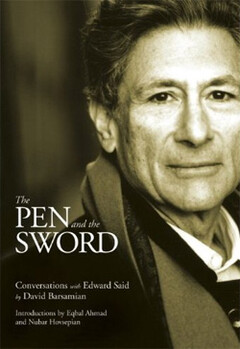The Jerusalem Post 7 October 2002
I am leaving, but I still have something to get off my chest. I leave with mixed feelings. Friends know that I will always be back. I am forced to leave and return, moving back and forth, between the East and the West, between oppression and resistance, occupation and freedom.
Home is not a map, nor a birth certificate. It is, as Mahmud Darwish, the famous Palestinian poet, wrote, “your life and your cause bound up together. And before and after all of that, it is the essence of who you are.” It is the essence of being a Palestinian.
What do you feel more, Dutch or Palestinian? Journalists always ask me this question, and I always answer with a metaphor. Imagine, you have two children. You love both dearly. However, one of them was wounded. Logically, you give more attention to your wounded child, which, in my case, is my Palestinian background, hoping that this child is not permanently disabled.
It moves even beyond this. Between the Israeli invasions of February and April, I was sick for two weeks. Asthma and bronchitis, which had been dormant in my system for a while, laid me low as Israeli troops invaded the Palestinian town of Ramallah overnight. Physically and politically, I was literally sick and tired. Penning the last sentence on yet another press release demanding that the international community take urgent action proved to be too much for my weakened immune system. Before I knew what was going on, I was sitting in a medical clinic next to the office, grasping for air, and waiting for a doctor to see me.
“At least I had access to medical care,” I thought. Apache helicopters, occasional shooting and other noises kept me from sleeping. I zapped CNN, BBC, and Sky News away to avoid hyperventilation. I did not watch IBA’s English News. Too much, I heard the word “terrorist,” less often the word “occupation.” The weeks preceding, the massive invasion of Palestinian towns, cities and refugee camps had kept me busy - working, writing, calling, urging, requesting, convincing, and demanding, yes, demanding urgent action.
“Inaction is complicity,” screamed an unusually urgent statement issued by Amnesty International. Indeed, to remain silent is to condone. But the world remained silent.
I wondered just how many people needed to get killed before I could press my demands again. I wondered how many more homes needed to be demolished, before I could demand compensation. I wanted to know when I could stop counting, lay my pen to rest and demand an end to impunity.
If there is any place where one can prove that human rights are not applied universally, it is here. If there is any place where the world prefers to apply double standards, it is here. If there is any place where colonialism and apartheid are not yet dismantled, it is here.
Still, against all odds, one must stay optimistic. It is too easy to be depressed by the current state of the world. I witnessed not only oppression but also resistance to oppression, not only injustice, but also brave people who struggle to end injustice.
In other places, I have tasted the sweetness of freedom. Although, there is still much to do in South Africa, a major part of that struggle has been won, plain and simple because apartheid was and is doomed to fail. These experiences tell me that action should always be based on those possibilities glimpsed in a reading of history different from the customary painful recounting of human cruelties.
What reasons do you give children who are denied their right to education? What reasons do you give pregnant women who cannot reach hospitals? What reasons do you give a farmer who cannot reach his crops?
Dehumanization by way of political language has an anesthetizing effect and it paralyzes normal human empathy and disrupts moral inhibitions. Palestinians are human beings who just want to live their lives and that of their children on the land they inherited from their ancestors. Are they secure in believing that they will not be forcibly evicted? Are they secure in believing that their home will not be demolished or that their land will not be confiscated?
My father was born in Nablus. My family still lives in Nablus. However, on travel documents, in computers of the Israeli Ministry of Interior, I am just a tourist with a travel permit, allowing only for a three months’ stay here.
Arjan El Fassed was affiliated with LAW - The Palestinian Society for the Protection of Human Rights and the Environment, and is co-founder of the website The Electronic Intifada. He lived in ar-Ram, near Ramallah.
Related Links:






